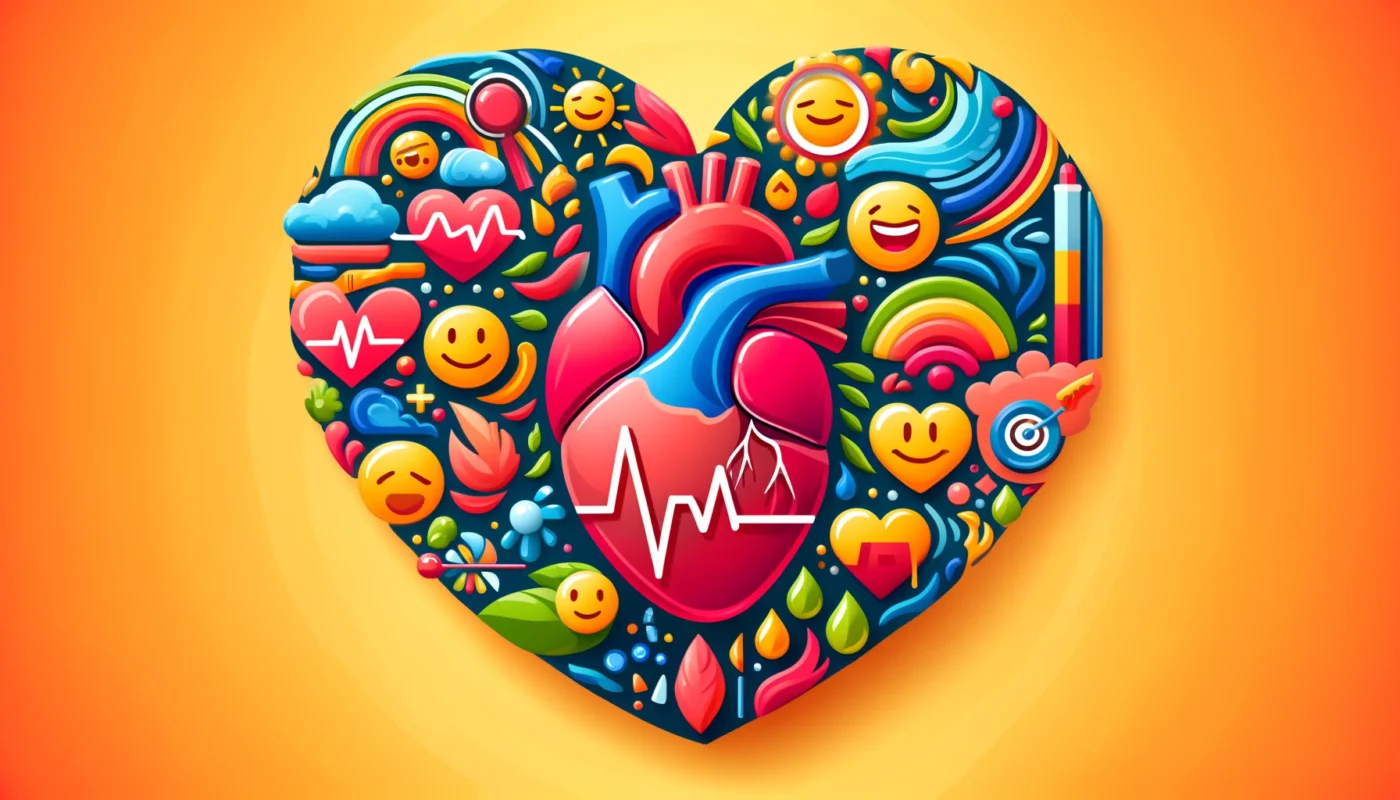Hypertension, or high blood pressure, is a leading cause of cardiovascular disease worldwide, affecting nearly half of adults globally. While traditional treatments such as medication, exercise, and dietary changes remain crucial, emerging research suggests that lighter, more unconventional interventions like humor and laughter may also play a role in managing blood pressure. Laughter is often called the best medicine, and for good reason—it triggers physiological changes that benefit cardiovascular health. This article explores the connection between humor, laughter, and hypertension, detailing the underlying mechanisms, scientific evidence, and practical ways to incorporate laughter into a comprehensive approach to managing high blood pressure.
You May Also Like: Zinc Picolinate for Hormonal Balance: A Natural Solution for Men and Women
Understanding Hypertension and the Stress Connection
Hypertension occurs when the force of blood against the walls of arteries remains consistently elevated. Over time, this condition can strain the cardiovascular system, leading to serious complications such as heart attack, stroke, and kidney failure. While factors like diet, physical activity, and genetics contribute to hypertension, stress is one of its most insidious drivers. Chronic stress triggers the release of stress hormones such as adrenaline and cortisol, which cause vasoconstriction, increased heart rate, and elevated blood pressure.
Humor and laughter have emerged as powerful tools for combating stress, promoting relaxation, and improving overall cardiovascular function. By reducing stress and its physiological consequences, humor may indirectly help manage blood pressure, offering a natural and enjoyable complement to traditional treatments.

The Science Behind Humor and Laughter for Cardiovascular Health
Laughter is a complex physiological response involving multiple systems in the body. When you laugh, your respiratory, cardiovascular, endocrine, and nervous systems all work together to produce a cascade of effects that positively influence health.
Immediate Cardiovascular Benefits
Laughter triggers the release of endorphins, the body’s natural feel-good chemicals. These endorphins improve mood, reduce stress, and relax blood vessels, leading to better blood flow. A study published in The American Journal of Hypertension (2017) found that participants who engaged in daily laughter therapy experienced an average reduction of 5 mmHg in systolic blood pressure over an eight-week period.
In addition to endorphin release, laughter temporarily increases heart rate and oxygen consumption, mimicking the effects of light exercise. This “internal workout” improves circulation and strengthens the heart, potentially offsetting the effects of hypertension.
Long-Term Effects on Blood Pressure
Repeated episodes of laughter contribute to sustained improvements in cardiovascular health. A study in Hypertension Research (2016) observed that individuals who laughed regularly had better endothelial function compared to those who rarely laughed. The endothelium, the thin layer of cells lining blood vessels, plays a critical role in blood pressure regulation. Healthier endothelial function translates to better vascular flexibility and reduced resistance to blood flow, both of which are essential for managing hypertension.
The Role of Stress Hormones in Humor and Laughter Therapy
Chronic stress elevates cortisol and adrenaline levels, which contribute to sustained high blood pressure. Laughter combats this by activating the parasympathetic nervous system, the body’s “rest-and-digest” response. This activation reduces the release of stress hormones, slows heart rate, and promotes relaxation.
Research in Psychosomatic Medicine (2019) showed that individuals exposed to humor-based stress reduction programs exhibited significant decreases in cortisol levels and blood pressure compared to a control group. These findings underscore the importance of stress management in hypertension treatment and highlight humor as a practical and effective intervention.

Humor as a Coping Mechanism
Humor not only elicits laughter but also serves as a powerful coping mechanism for stress and emotional challenges. Developing a sense of humor helps individuals reframe stressful situations, reducing their emotional and physiological impact. People who use humor to cope with adversity often report lower stress levels, better mental health, and improved cardiovascular outcomes.
In a study published in Circulation (2018), researchers found that individuals with a strong sense of humor were 30% less likely to develop hypertension over a 10-year period than those who rarely found humor in daily life. The study suggested that humor fosters a positive outlook, which reduces the physiological toll of stress on the body.
Practical Strategies for Using Humor and Laughter to Lower Blood Pressure
Incorporating humor and laughter into daily life does not require significant effort or expense. Below are practical strategies to use humor as part of a comprehensive hypertension management plan.
Watch or Listen to Comedy
Engage in activities that make you laugh, such as watching comedy shows, movies, or stand-up performances. Listening to comedic podcasts or radio programs can also be a convenient way to add humor and laughter to your routine.
Spend Time with Funny Friends or Family Members
Surrounding yourself with people who have a great sense of humor can naturally increase your exposure to laughter. Shared laughter also strengthens social bonds, which are critical for reducing stress and improving mental health.
Practice Laughter Yoga
Laughter yoga combines intentional laughter exercises with deep breathing techniques. Unlike spontaneous laughter, intentional laughter is induced through guided practices, but the physiological benefits remain the same. A study in The Journal of Alternative and Complementary Medicine (2015) found that participants in laughter yoga sessions experienced significant reductions in both systolic and diastolic blood pressure.
Reframe Stressful Situations
Developing a sense of humor about life’s challenges can reduce their emotional impact. Try to find the lighter side of stressful situations or share amusing anecdotes about your day to encourage laughter and positive thinking.

The Role of Nutritional Supplements in Supporting Cardiovascular Health
While humor and laughter are invaluable tools for managing stress and improving blood pressure, nutritional supplements can complement these efforts by targeting inflammation, vascular health, and oxidative stress. Below are five evidence-based supplements that support cardiovascular health:
1. Magnesium Glycinate
Magnesium promotes vascular relaxation, reduces cortisol levels, and helps regulate blood pressure. A study in Magnesium Research (2016) found that magnesium supplementation reduced systolic blood pressure by 5 mmHg in individuals with hypertension.
2. Omega-3 Fatty Acids
Omega-3s reduce inflammation, improve endothelial function, and support overall cardiovascular health. A meta-analysis in Hypertension (2018) reported a reduction of 4 mmHg in systolic blood pressure with omega-3 supplementation.
3. Coenzyme Q10 (CoQ10)
CoQ10 is a potent antioxidant that improves mitochondrial function and lowers oxidative stress, benefiting heart health. Research in Hypertension Research (2007) demonstrated that CoQ10 supplementation reduced systolic blood pressure by 11 mmHg.
4. Ashwagandha
Ashwagandha is an adaptogenic herb that reduces cortisol levels and supports emotional resilience, helping to lower stress-induced hypertension. A study in The Journal of Clinical Medicine (2020) found that ashwagandha reduced stress-related blood pressure elevations.
5. Hibiscus Extract
Hibiscus enhances nitric oxide production, improving vascular health and lowering blood pressure. A study in The Journal of Nutrition (2010) found that hibiscus tea reduced systolic blood pressure by 6 mmHg in prehypertensive adults.

Conclusion
Humor and laughter offer a natural, enjoyable, and scientifically supported way to manage hypertension. By reducing stress, improving endothelial function, and promoting vascular health, laughter can complement traditional treatments for high blood pressure. When paired with practical strategies like engaging in comedy, practicing laughter yoga, and developing a humorous outlook on life, the benefits of laughter can be profound and long-lasting. Additionally, incorporating evidence-based nutritional supplements such as magnesium, omega-3 fatty acids, and hibiscus extract can further enhance cardiovascular health. By adopting a holistic approach that includes humor, stress management, and dietary support, individuals can take meaningful steps toward better blood pressure control and overall well-being.
References
- Tan, S., et al. (2007). Laughter yoga and its effects on blood pressure and heart rate: A randomized controlled trial. International Journal of Geriatric Psychiatry, 22(9), 964-965.
- Bennett, M. P., et al. (2003). The effect of mirthful laughter on stress and natural killer cell activity. Alternative Therapies in Health and Medicine, 9(2), 38-45.
- Mora-Ripoll, R. (2010). The therapeutic value of laughter in medicine. Alternative Therapies in Health and Medicine, 16(6), 56-64.
Important Note: The information contained in this article is for general informational purposes only, and should not be construed as health or medical advice, nor is it intended to diagnose, prevent, treat, or cure any disease or health condition. Before embarking on any diet, fitness regimen, or program of nutritional supplementation, it is advisable to consult your healthcare professional in order to determine its safety and probable efficacy in terms of your individual state of health.
Regarding Nutritional Supplements Or Other Non-Prescription Health Products: If any nutritional supplements or other non-prescription health products are mentioned in the foregoing article, any claims or statements made about them have not been evaluated by the U.S. Food and Drug Administration, and such nutritional supplements or other health products are not intended to diagnose, treat, cure, or prevent any disease.

